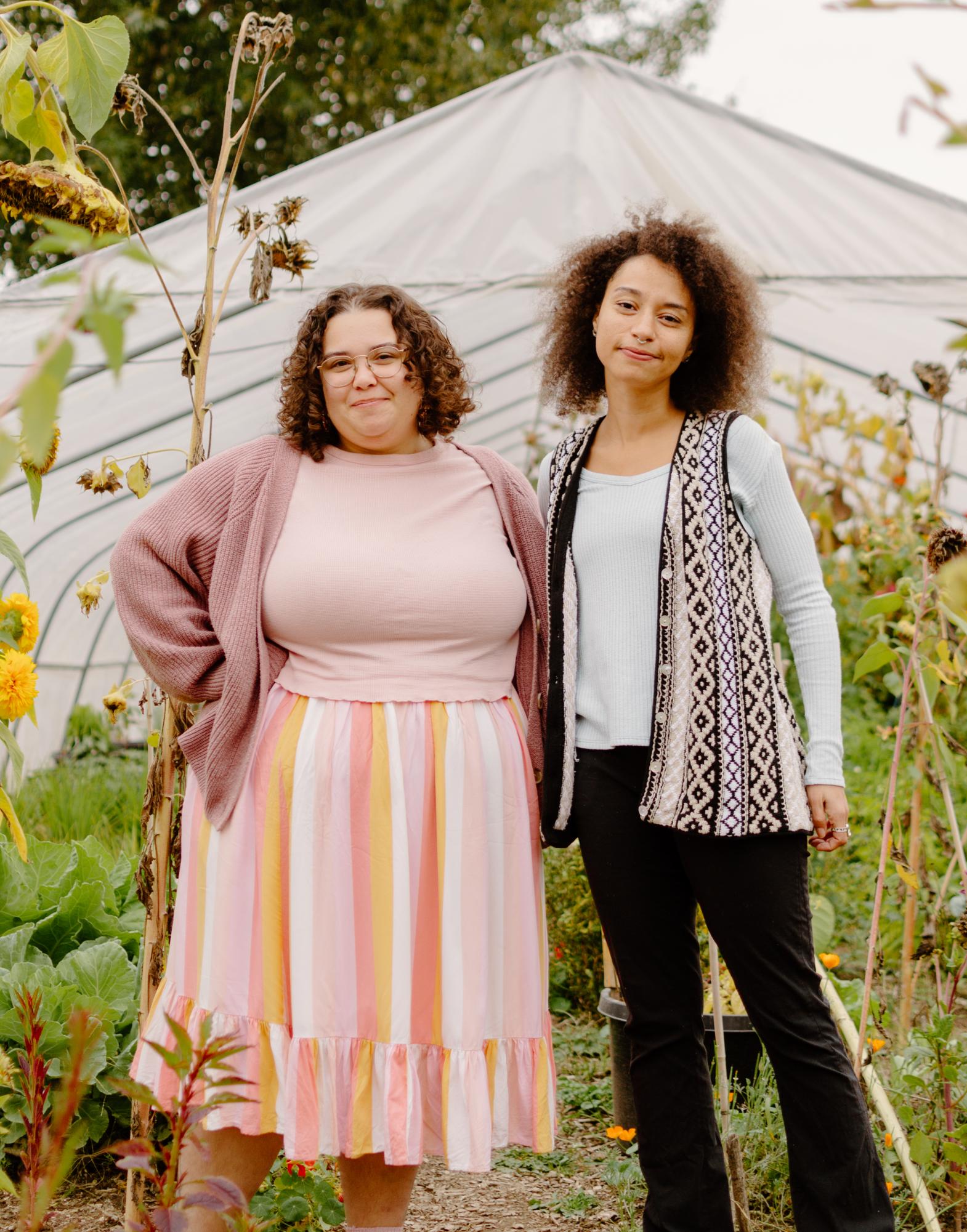The supermarket only has so many types of rice.
For Oregon State University’s many students with a multicultural or underrepresented cultural background, there is no guarantee that local supermarkets will be able to provide the ingredients to make a traditional or indigenous meal.
In fall 2020, a group of agricultural science students noticed “a missing piece in our community was an affinity space or a safe space for students who hold marginalized identities to connect to land, to learn how to garden to be able to grow plants that are meaningful to them in their cultures and also finding ways to connect to their cultural heritage through growing plants,” said Charlie Epps, recent graduate of OSU.
The Reciprocity Garden, as it’s come to be known, lies in the Oak Creek Center for Urban Horticulture off OSU’s main campus. A high-top greenhouse shelters a number of plots growing peppers, rice, lemongrass and many other blooms extending from well-tended plots.
“(The garden space) was basically abandoned,” Epps said. “We like to say we turned trash into treasure and added a lot of value to Oak Creek because we turned 4,000 square feet that wasn’t being used at all into a really incredible gardening space with plants from all over the world that were requested from students from different cultural backgrounds.”
Despite the pressures from the ongoing pandemic, the garden was able to have a successful harvest among fulfilling their other goals.
“From a social justice space, we knew that there was a need for this––OSU being a predominantly white institution,” Epps said. “From a community care basis, this is when it was not safe to gather in large gatherings. Most everything on campus had come to a stop because of the pandemic and so we were actually able to provide a safe outdoor setting for people to come together and have gatherings.”
Some of the fresh produce from harvests are donated to the Basic Needs Center, and the Reciprocity Garden has been able to host a number of community-oriented events.
The outreach has extended to the Leticia Carson Legacy Project, Lonnie B. Harris Black Cultural Center and local chapter of the National Association for the Advancement of Colored People.
The Wakanda Warriors is an organization created by the NAACP to serve Black youth from elementary school through middle school locally.
“Last year, we did what we were calling ‘Second Sundays’, so every second Sunday of the month, we would host the Wakanda Warriors, so whatever families would come out to the to Oak Creek into the garden, and we would just get them involved in the process of growing plants,” Epps said.
But the Reciprocity Garden is still a student-run organization.
“I ended up finding the garden through a sustainability class,” said Kailey Leiger, a student involved at the Reciprocity Garden. “Charlie needed some extra hands for setup and takedown of the high tunnel … and so I decided to do that as my volunteer project for that class, and I just kind of ended up never leaving.”
Students from a number of OSU classes have the option to visit the garden as a service learning opportunity, as the garden not only provides a place to engage with the agricultural sciences, but also historical and social justice issues.
“We are all very hard science pursuit people,” Leiger said. “So we got to have the Decolonization of Food Systems class (come) out, which was more liberal arts majors. We got to get them in the dirt. We got to get them planting stuff. It was so fun to see them engage with the land that they live on in a way that they never had before.”
For students interested in visiting or joining, the Reciprocity Garden cannot be found through OSU’s Club and Organizations. At their inception, the founders debated joining OSU as a club, but ultimately decided not to.
“It creates a barrier of access that the garden is trying to challenge… So there’s not a ton of hierarchy at the garden,” Epps said. “I call myself a leader there, but really, I call myself a caretaker and the garden takes care of me too. And what you’ll see is that the other student gardeners play just as active roles in leadership.”
The Reciprocity Garden has been able to secure funding from external grants, and many marginalized students still find a sense of community there that may be more difficult to find on-campus, Epps said.
“We’re just a group of really passionate plant lovers from different backgrounds, and that’s kind of held us together like a bond,” Epps said.
Both Epps and Leiger encourage students to come and check out the Reciprocity Garden regardless of how green their thumbs are. The garden serves all levels of learning, and its organizers are especially interested in helping those with little experience or knowledge to engage with the land.
“We definitely don’t discriminate or turn people away, but we do really pride ourselves in creating this,” Epps said. “It’s an oasis. It’s a really, really special place on campus and we work really hard to protect that environment and that atmosphere.”












































































































